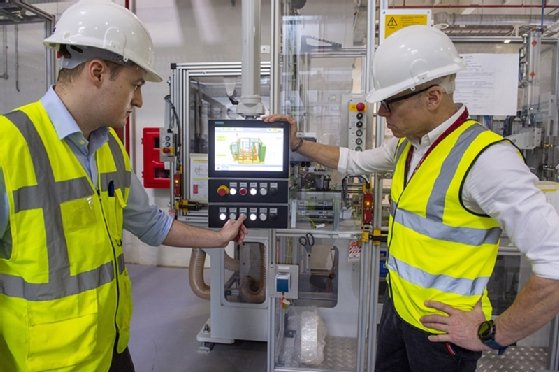
iaremenko - stock.adobe.com
Ford gets into gear with Vodafone 5G for future-proof electric vehicle production
Global automotive giant gains funding to implement and develop the potential of 5G in electric vehicle manufacturing processes in particular as regards cross-site connectivity
As it looks to hit the accelerator on the production of next-generation vehicles, Ford has announced has received government backing for the introduction of 5G connectivity to speed up electric vehicle manufacturing.
The global automotive company is part of a consortium designing and manufacturing the next-generation vehicles, and the UK government has invested a total of £65m to nine consortia harnessing the potential of 5G.
To accelerate the production process, Ford will install a Vodafone Business 5G mobile private network in the new E:PriME (Electrified Powertrain in Manufacturing Engineering) facility on the company’s Dunton Campus.
The Vodafone Business 5G solution is designed to overcome many of the issues surrounding wireless connectivity in the industrial setting. It promises reduced delays, wider bandwidth, improved security and reliability, and faster deployment time.
Ford will focus on the connectivity of the welding machines in the manufacture of electric vehicles. The batteries and electric motors within an EV require around 1,000 welds.
For a single EV product, this could generate more than a half a million pieces of data every minute. Fast, reliable, high capacity data capture and analysis will be a significant requirement of these processes.
Ford is confident that by the time installation is complete in the autumn, E:PriME Dunton will have the fastest possible connectivity alongside the consortium’s second network at welding research specialists TWI, based in Cambridge.
Connected equipment on the TWI and Dunton sites’ will offer real-time control, analysis and remote expert support, ensuring new manufacturing processes are shop floor-ready.
The manufacturer believes that essentially connecting the data with experts, such as TWI and manufacturers, is critical if processes are to develop at the same rate as these innovative products demand.

“Connecting today’s shop floor requires significant time and investment. Present technology can be the limiting factor in reconfiguring and deploying next-gen manufacturing systems,” said Chris White, Ford’s 5GEM project lead.
“5G presents the opportunity to transform the speed of launch and flexibility of present manufacturing facilities, moving us towards tomorrow’s plants connected to remote expert support and artificial intelligence.”
Vinod Kumar, CEO of Vodafone Business, added: “5G mobile private networks act as a springboard for organisations, allowing them to rethink the way they do business. In this case, MPN technology makes the factory of the future possible. It allows machines and computing power to coordinate in real time, improving precision, efficiency and safety. We’re excited to help Ford plan for the future of its business.”
Offering his opinion on the projects in which the UK government is investing in, Oliver Dowden, secretary of state for Digital, Culture, Media and Sport, said: “We’re determined to harness this revolutionary technology to boost the productivity and growth of UK industries.
“We want Britain to be a world leader in 5G, and since 2017 the government has invested millions in ground-breaking testbeds and trials across the country to achieve this,” he added.
Read more about automotive networks
- Design and engineering have rapidly evolved to be all about interconnected devices. We see how one of the leading manufacturing software suppliers is meeting the challenge of today and tomorrow.
- Consumers and the automotive industry as a whole have seven major needs to consider before IoT-enabled cars can become a reality.
- Connected technology provider Aeris gears up for connected vehicle joint venture with VW to improve service flexibility and speed, operational efficiency and customer experience.








